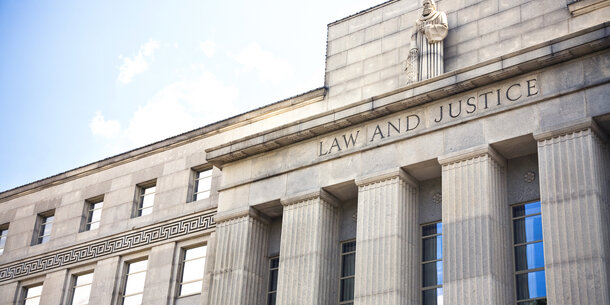House Judiciary Subcommittee Holds Hearing on SCOTUS Shadow Docket
On February 18, the House Judiciary Committee’s subcommittee on courts, intellectual property, and the internet held a hearing on the U.S. Supreme Court’s so-called shadow docket.
The term shadow docket, coined by University of Chicago law professor William Baude, refers to emergency rulings and other decisions issued by the Court outside of its merits docket. These decisions are issued without oral argument or full briefing. They are also often unsigned and provide limited reasoning. Most recently, the Court has used the shadow docket to decide cases on a wide range of issues, from voting rights to Covid-19 restrictions, the death penalty, and access to abortion.
Lawmakers and witnesses discussed a variety of reforms to make the Court’s shadow docket decisions more transparent, such as requiring the justices to disclose their votes. In addition, witness Professor Stephen Vladeck of the University of Texas School of Law urged Congress to consider reforms to “take the pressure off the shadow docket,” such as speeding up the appellate review process for certain types of cases.
Connecticut Governor Nominates Class of Diverse Judges to Trial Courts
On February 17, Governor Ned Lamont announced nominees to fill 15 out of 50 vacancies on the Connecticut Superior Court, including eight female candidates, three Black candidates, and four Hispanic candidates.
“I am proud today to announce one of the most diverse classes of judicial nominations in our state’s history,” Lamont said in his press release. “This class of women and men bring with them a diverse background of experience and qualifications that meet the high standards that the residents of Connecticut deserve to have serving in leadership positions in the court system.”
According to the Connecticut Mirror, Lamont has indicated a desire to improve judicial diversity across the state. His last four nominations to the state appellate and supreme courts included three women, two of whom are people of color. At the time of these nominations, “the three tiers of the judicial branch had 118 judges who identified as white, 24 as Black, five as Hispanic, seven as Asian and two as multi-racial. There were 90 men and 66 women.”
U.S. Senators Cross Partisan Lines to Urge Greater Financial Disclosure From SCOTUS
On February 17, Senators Sheldon Whitehouse (D-RI) and Lindsey Graham (R-SC) sent a letter to Chief Justice John Roberts calling for greater financial transparency from the U.S. Supreme Court.
In their letter, the two senators noted that Supreme Court justices “are subject to the lowest standards of transparency of any senior officials across the federal government.” The senators also said that they would introduce legislation to “bring the judiciary’s financial disclosure requirements in line with other branches of government if the Court does not address the issue itself.”
Currently, Supreme Court justices are exempt from some of the requirements of the Ethics Reform Act of 1989, which requires members of Congress and the executive branch to annually disclose outside income, gifts, and reimbursements. The justices are also the only judges in the country who do not have to adhere to a code of ethical conduct.
In September 2019, the Brennan Center released a white paper calling for the Court to strengthen its rules governing gifts and disclosures. The recently re-introduced H.R. 1 – the For the People Act – also includes provisions to clarify the ethical standards that apply to the justices’ behavior.
Virtual Event – Behind the Bench: The Treatment and Selection of Law Clerks
Thursday, March 4 and Friday, March 5 | 1:00 p.m.–2:15 p.m. ET
The judiciary isn’t only a legal institution — it’s an employer, and clerkships are often a pipeline to leadership positions in the law. Two panels will look at issues related to diversity, equity, and inclusion in the courts. On Thursday, March 4, a panel will address sexual and other forms of harassment in the judiciary, and on Friday, March 5, a panel will discuss diversity and law clerk hiring. RSVP for Day 1 and Day 2.
Each event day (March 4 and 5) has been approved for New York State CLE credits in Diversity, Inclusion, and Elimination of Bias category. For questions email cle@brennan.law.nyu.edu.
This event is co-sponsored by the National Women’s Law Center, the NYU Law Review, the American Constitution Society at NYU LAW, Latinx Law Students Association at NYU Law, and the Black Allied Law Students Association.

